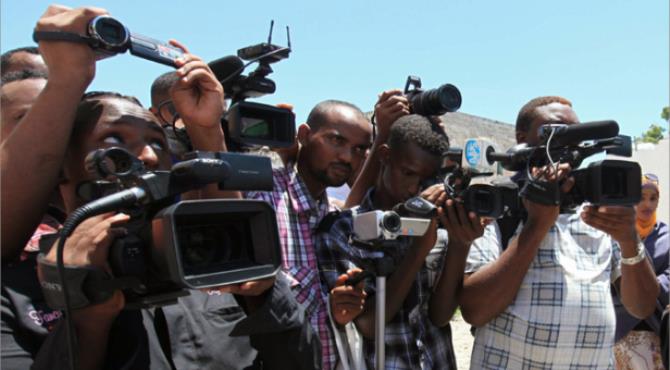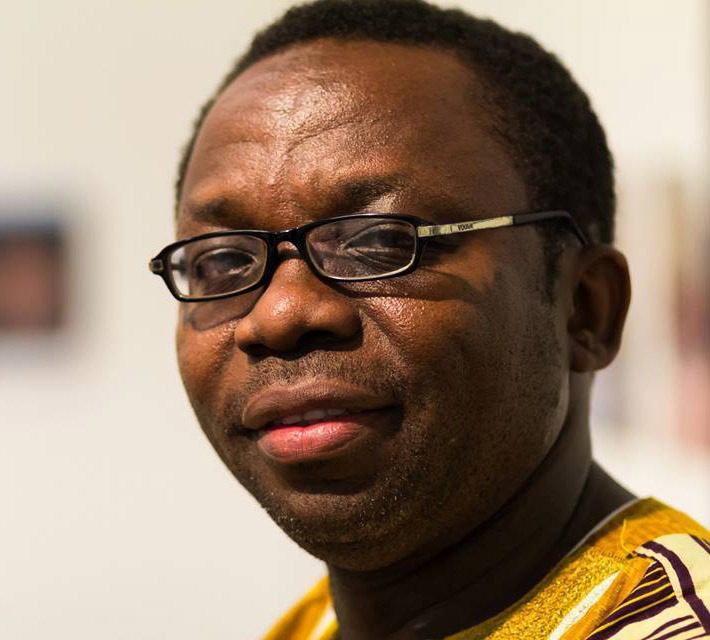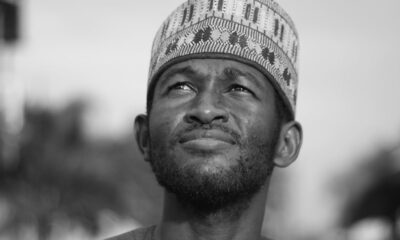National Issues
Hunger is a Nigerian journalist -By Bob Majiri Oghene Etemiku

The current practice where a journalist’s ID card is a meal-ticket for the journalist is an embarrassment to Nigeria.
On the 21st July, 2015, I read an article in The Punch newspaper titled ‘Bailout for Debtor media Houses?’ by Idowu Sowunmi, a media consultant. On the third paragraph of that article, Mr. Sowunmi highlighted the names of media houses that owe workers salaries from as ‘little’ as four months to 18 whole months. As I scanned through the list of the who-is-who in the Fourth Estate of the realm that have ‘turned workers in these media houses to beautiful slaves of some sort’, I remembered that in 2010, I had had cause to write an article like Mr. Sowunmi’s. In it I had wondered at how a journalist who had not been paid his salary for eight, nine or ten months could take care of his rent, fuel his car, provide for his nuclear and extended families and still remain in a sound frame of mind to report on state governors who had not paid salaries of workers for as long as 7 months as well.
That article was serialized in the Daily Independent newspaper, and titled ‘Nigerian Journalism Heal thyself’. There were several reactions to that article and the one that I vividly remember was one by a journalist who misread my theme and upbraided me for daring to discuss a topic so wrapped in awe and discussed in hushed tones around our Estate. But I came off from that discussion with the journalist with an awkward feeling in my gut: how long are we going to pretend that journalists are not being enslaved, subjected to hunger in their minds, souls and bodies, and that the only way some survive is to go a-borrowing and ‘marketing’ since the regularity of the ‘brown envelope’ is seemingly irregular?
The other day I called up a colleague from one foremost newspaper in the North of Nigeria with whom I had had informal and professional dealings. All I wanted of him was the name and email of the editor in charge of a certain page of his newspaper. I was stunned that he asked me to pay a fee for that ‘service’ and I told him so. He told me off as well, insisting that there was no way in hell that I was going to be able to reach that editor. ‘Even if you reach him, your article will only end up in his junk of his email. You will have to pay for me so that I can tell the editor to publish your article’, he said. He was right – even though I had sent some articles to that paper, none has ever seen the light of day. I cannot say that this is the same attitude that my editors at ThisDay, Daily Independent, The Guardian, The Punch and The Nation Newspapers have exhibited – I have never met anyone of them personally, yet they subject my articles to the fire of objectivity and fairness and publish if my articles meet their high standards.
Therefore, I cannot be in a hurry to point fingers at whom or what is responsible for the mess the media is in today. A colleague demanding for and asking to be paid for doing a job for which he is not being paid is probably just being human. The only problem there is at this stage is that the journalist is asking for his wages from source(s) from which he shouldn’t be expecting to be paid. Human beings have real and tangible needs, and these needs have to be met whether you like it or not. But human beings are the problems of human beings. Our journalists are no less trained than other professionals in other fields of human endeavour who do a decent job and who earn a decent wage. Take for an example some journalists in the civilized world – Fareed Zakaria, Anderson Cooper, Wolf Blitzer, Boris Johnson, Christiana Amanpour, Jeremy Vine and etcetera who hold some of the same degrees that our own journalists hold in mass communications or journalism. Amanpour is worth nearly $13million, Cooper $100million and Blitzer $6million, not just because they come on air and read the news. They are worth what they are worth because their system is much more organized and much more professional than what we have here.
Let me explain: most of Europe and the Americas do not employ you to be a journalist simply because you can write or simply because you have a BA in Mass Communications no. They employ you based on your track record in your chosen profession – architect, economist, sociologist or that you are a marine biologist who will be able to bring the full weight of your professional capacity to bear on information dissemination. The assumption is that a marine biologist would be better trained to understand, dissect and distil information before it gets to the public. If a media house in Europe and America were to employ a lawyer or an accountant, they would have to pay him, else they would have no option but to close shop.
Another thing that makes the practice of journalism in the civilized world much more interesting and exciting than what obtains in some media houses in Nigeria is that the media houses themselves have flexible professional affiliations with journalists. Most will not employ large members of staff if they know that they cannot afford to pay them. They know that keeping a large number of journalists translates to a huge wage bill not just in terms of monthly salaries but welfare packages and emoluments as well. So what they do is that they keep a large number of stringers – professional journalists who work freelance and only get paid if they have a story that sells – and yes, stories sell like hot cake in that part of the world. A journalist who has a good story can sell it to as many mediums as possible. He doesn’t have to be employed and sit at a desk from Monday to Sunday, without holidays and with no pay.
But that is not all – journalists in the civilized world do other things apart from just sitting at a desk. They multitask – they teach, blog, write books, take pictures and engage on speaking tasks that rake in a nice income. If a Nigerian journalist were to do this, the wrath of his employers would probably fall on him and the fear of losing a job for which he is not even paid or paid well is so great.
And it is at this point that I would part ways with the author of ‘Bail out for media Houses?’ who seeks government intervention for the inability of media to pay its workers. The minute government intervenes and gives newspaper houses a bailout, they would become rubber stamps and news agencies of government. I would prefer to have a medium struggling to pay its workers salaries than having one on the payroll or bailout or one that has collected dole from government. The very essence of journalism is in being able to speak truth to power and hold government accountable. How many journalists on the entourage of a governor or a minister actually do hard investigations on government expenditure in spite of their proximity to that government official?
Consequently, I would recommend as I did in ‘Nigerian Journalism Heal thyself’ that media houses that are unable to pay salaries should democratize, ‘rebrand’ or re-strategize – they should use more freelancers, bloggers, reporters and syndicated columnists who have a job elsewhere but who are interested in earning something extra. The current practice where a journalist’s ID card is a meal-ticket for the journalist is an embarrassment to Nigeria, and stunts the growth and development of democracy.
Written by Bob MajiriOghene Etemiku, a Communications manager with the Africa Network for Environment and Economic Justice, ANEEJ.


















